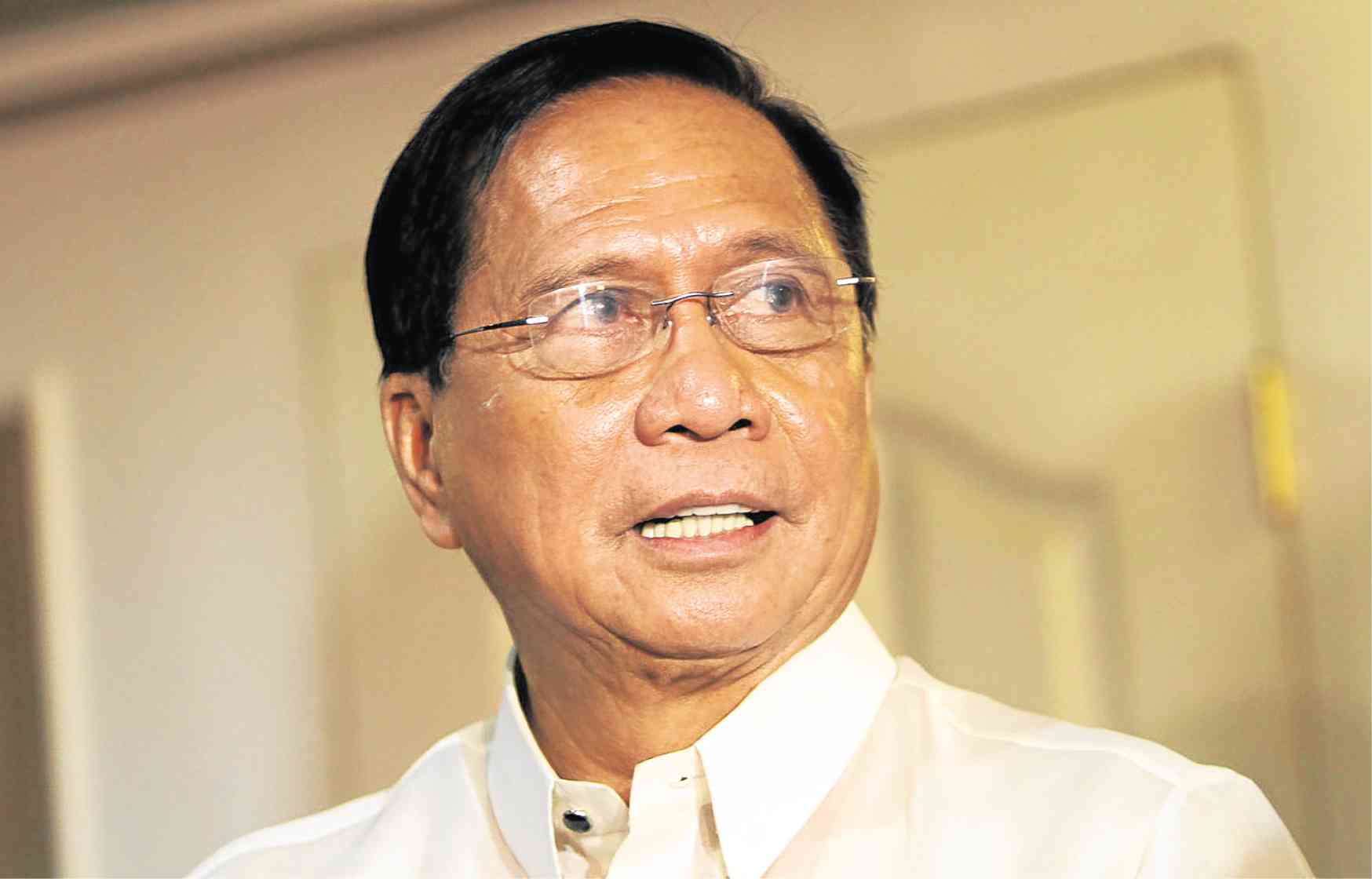
Secretary Jesus Dureza, former presidential adviser on the peace process. (File photo from the Philippine Daily Inquirer)
DAVAO CITY — Former presidential peace adviser Jesus Dureza has advised President-elect Ferdinand Marcos Jr. to resume negotiations with communist rebels to reach a political settlement to their five-decade armed rebellion.
Dureza made the unsolicited advice during the launch Saturday of his autobiography, “Walked with the Presidents.”
The book compiles first-hand accounts of his work under presidents Corazon Aquino, Fidel Ramos, Joseph Estrada, Gloria Macapagal-Arroyo, Benigno Aquino III, and Rodrigo Duterte.
“We hope that with President Bongbong Marcos, we can resume the peace negotiations because the work for peace is a never-ending work,” Dureza said.
Dureza is an old hand in the government efforts to win back Moro and communist rebels into mainstream society. He was involved in reestablishing contact with Communist Party of the Philippines (CPP) founding chair Jose Maria Sison, who is on self-exile in The Netherlands, to restart peace negotiations with the government.
Under Arroyo, Dureza headed the government panel in the negotiations with the Moro Islamic Liberation Front (MILF). As presidential peace adviser to Duterte, he also headed the government panel in the negotiations with the National Democratic Front of the Philippines (NDFP), a united front of CPP-led underground organizations.
The talks with communist rebels began on a high note under the administration of Duterte, who allowed the CPP to nominate several members of his Cabinet and welcomed its leaders inside Malacañang Palace.
But Duterte terminated the negotiations in 2017, annoyed by the communist rebels’ continued armed offensives against government forces.
Dureza said the peace process “can continue later when the environment is conducive.”
Development
He also emphasized that “the piece by piece” work for peace must also be accompanied by development, not one after the other.
“Peace and development must come both at the same time,” Dureza pointed out.
Apart from the communist rebels, Dureza also proposed that the government revisit its implementation of an agreement with the Moro National Liberation Front under its founding chair, Nur Misuari.
He said the agreement with Misuari’s group, forged in 1996, must be implemented not through the MILF, nor the Bangsamoro Autonomous Region in Muslim Mindanao.
“I think it is just in making Nur Misuari happy with what the situation will be,” he added, although he acknowledged that the BARMM had encompassed some aspects of the negotiated settlement with the group of Misuari.
When he was Duterte’s peace adviser, Dureza also sought the convergence of the peace deals between the government and the MILF and MNLF.
Dureza acknowledged the key role played by Misuari in dealing with the Abu Sayyaf terrorists of Sulu that resulted in the freeing of many hostages.
Dureza also pitched for federalism, a political project of Duterte that did not get enough traction in the last six years.
“Let’s hope that the new president will carry on what President Duterte failed to do,” he said.
Dureza appeared open to the idea of joining the government again.
Given his long experience in the field, Dureza is the logical choice to head the government’s peace process office, now renamed the Office of the Presidential Adviser on Peace, Reconciliation, and Unity to reflect its expanded mandate, said Maulana Balangi, president of the One Bangsamoro Movement.
But Dureza said there would be a need to make the office a regular department as currently, it is still directly under the wings of the Office of the President and could be abolished anytime by the incumbent president. (With reports from Ryan D. Rosauro)